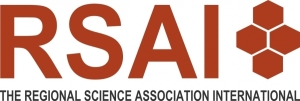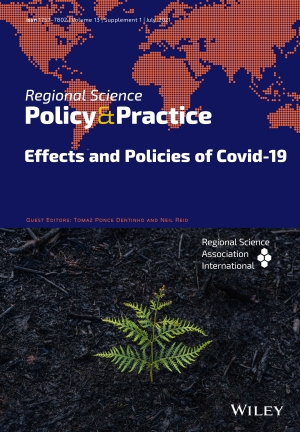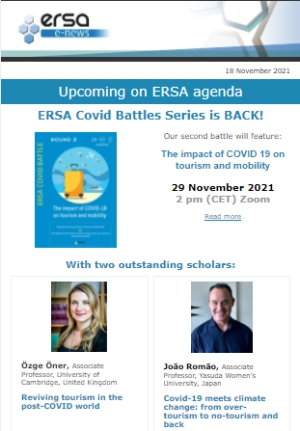Council
Elisabete Martins
Position, assistant professor in Economics in Jönköping
Assistant Professor in Economics
Jönköping International Business School, Faculty
Jönköping International Business School (JIBS) is one of four schools at Jönköping University. We offer an international and team-oriented workplace with competitive education programmes across bachelor’s, master’s and doctoral levels, as well as a thriving research environment and many opportunities for personal development. Our mission is to advance the theory and practice of business and economics, with specific focus on entrepreneurship, ownership, and renewal. Our guiding principles are international at heart, entrepreneurial in mind and responsible in action. JIBS is accredited by both EQUIS and AACSB.
Our offer to you
JIBS offers its academic staff opportunities to develop in a truly international environment, which attracts talented researchers and motivated students from all around the world. JIBS provides an atmosphere that values high-quality teaching and research, and it is internationally accredited for the quality of its programs. The Discipline of Economics at JIBS is expanding, providing unique possibilities for new colleagues to contribute to the development of the discipline.
We seek a qualified candidate for a permanent full-time position as Assistant Professor in Economics starting as soon as possible. We seek a candidate with wide teaching experience. In terms of research, we seek a candidate that can perform excellent research and is able to strengthen our research environment here at JIBS. It is meritorious if the candidate has a research interest in entrepreneurship, business renewal, innovation, regional economics, and/or spatial dynamics. The research is highly encouraged to target high quality journals but also influence practitioners. Candidates should have excellent communication skills, as well as a clear vocation for academia.
Job description
The holders of the position will be a part of the Discipline of Economics at JIBS, positioned at the Faculty of Economics, Finance and Statistics. The work tasks comprise teaching activities at bachelor’s and master’s level, research and other services to JIBS that are related to the position. The position is teaching oriented, and teaching is distributed over the different parts of the academic year, covering a range of topics of economics, and performed primarily in English. The holder of the position is expected to be an active researcher and to contribute with new knowledge that strengthens the JIBS brand. The candidate is expected to apply for externally funded research grants. A high priority of the faculty of Economics, Finance and Statistics at JIBS is to have a strong academic and collegial milieu, so regular attendance at the workplace is an important element of the position.
Requirements
You hold a PhD degree in Economics (or equivalent academic competence) or will have such a degree by the time of hiring. You have documented teaching and research experience and have taken a course in teaching and learning in higher education (or are willing to take such a course within the first two years of employment). You have a well-defined research interest. Furthermore, you have proven abilities to interact with business and/or society and have demonstrated an ability to plan, organize and prioritize work efficiently. You are fluent in written and spoken English and have excellent communication skills. It is meritorious if you have:
- Teaching experience equal to 1-year full time employment as a teacher.
- Experience from leadership in academia, public sector, or industry.
- Research within the field of entrepreneurship, business renewal, regional economics, and/or spatial dynamics.
- An academic network and collaboration with other scholars.
- Experience in the coordination and development of a course.
- Experience from applying for and obtaining external funding.
- Experience in societal engagement and research outreach activities.
- Experience from teaching Economics in Swedish.
In the selection process, we will put emphasis on the person’s ability to take initiatives, be autonomous and flexible as well as having the ability to co-operate with colleagues. The criteria to be an eligible candidate include the completion of a PhD in economics or a closely related field (including dissertation) at the time of hiring. If the PhD is not completed by the time of application, the expected date of completion must be verified by the Dean/MD at the institution granting the PhD degree. You should be willing to contribute to a dynamic academic environment by spending most of your working time at JIBS and be willing to get established in Jönköping.
For full eligibility requirements, see "Appointment Procedure at Jönköping University".
Information
The position is permanent and full-time, starting as soon as possible or as agreed upon.
Application
Deadline for applying is 9th of January 2022.
Your application should include:
- a personal cover letter that describes your interest for the position (max 1 page)
- a complete CV and publication list, including contact information for three professional references.
- a copy of your PhD thesis;
- an attested copy of your PhD degree certificate/diploma, or, if the doctoral degree is not yet completed, a statement from the Dean/MD of the institution verifying that there is a decision regarding the date for when the PhD degree will be completed.
- a description of your research interest and profile. Include up to three of your most relevant publications and a brief declaration of your research approach and intention (max 1 page);
- a description of relevant teaching experience (max 1 page), including sessions and courses (in all levels and types of education), personal teaching approach, style or philosophy and contributions to innovations in education.
| Type of employment | Permanent position |
|---|---|
| Contract type | Full time |
| First day of employment | According to agreement |
| Salary | Monthly salary |
| Number of positions | 1 |
| Working hours | 100% |
| City | Jönköping |
| County | Jönköpings län |
| Country | Sweden |
| Reference number | 2021/5387-211 |
| Contact |
Lina Bjerke, +46 36-10 10 00 |
| Union representative |
Barbara Eklöf, ST, +46 36-10 10 00 Thomas Cyron, Saco-S, +46 36-10 10 00 |
| Published | 10.Dec.2021 |
| Last application date | 09.Jan.2022 11:59 PM CET |
New Issue 51 of Investigaciones Regionales - Journal of Regional Research
We have issued the 51st volume of Investigaciones Regionales - Journal of Regional Research, including a diverse list of articles, including multiple disciplines and orientations, following the philosophy of the journal of accommodating papers with the diversity of disciplines within Regional Science.
The work authored by Francisco Yépez Muñoz, Luis Palma Martos and Noemí Pulido Pavón opens the current issue with the title “Rethinking Andalusian RIS3 Strategy Design through Regional Benchmarking”, within the papers devoted to European Policy. According to the authors, research and innovation strategies for smart specialisation (RIS3) has played a key role in the European Union regional policy in the 2014-2020 programing period. Regional benchmarking exercises are encouraged by the European Commission to provide a better vision of the position of the region and detect its strengths and weaknesses. In this work the authors intend to reinforce the SWOT analysis included in the RIS3 strategy of Andalusia 2014-2020 using the benchmarking methodology proposed by the European Commission. This exercise allows to outline new proposals for action and a qualitative methodology that could be useful in the design of RIS3 strategies in the period 2021-2027.
The next article is titled “The influence of agglomeration on growth: A study of Argentina”, being authors Alberto José Figueras, Daniela Cristina, Valeria Blanco and Iván Martín Iturralde. This paper analyses the influence of agglomeration on economic growth in the Argentinian provinces for the period 1981–2007 using fixed effects and GMM estimation for panel data, and estimation technique considered for controlling for potential simultaneity bias. The authors find evidence of a link between agglomeration and growth in the Argentinian provinces, suggesting that the Williamson hypothesis is in place.
Jhon James Mora Rodríguez writes the paper titled “Spatial social effects on the decision to participate in the youth labor market in a developing country”. The point of departure assumes that globally, many public policies seek to improve the results in participation, employment, and unemployment of the youth in the labor market. Evidence shows that education, age, sex, income conditions of the household, and working conditions affect labor market participation. However, how the behavior of the closest individuals affects the decision of the younger individuals to labor participation in a developing country is a matter of discussion. Using GPS location for 1094 young people, I estimate a spatial model for individual decisions to participate in the labor market in Colombia. Results show that the nearby individual’s similar decision regarding labor participation affects the youth’s decision to participate or social effects in youth labor participation
The objective of the paper “Special employment centers, Profitable or social objective? An study of their economic and financial situation” is to find differences in the core economic indicators of the special employment centers depending on, if they were created to obtain profit, or with social goals. The authors, José Manuel Santos Jaén, Esther Ortiz Martínez, Salvador Marín Hernández, have created a database with 166 financial statements of the special employment centers from the Region of Murcia for the period 2012-2016. They do a descriptive analysis of these data using the core economic and financial ratios. The obtained results allow to conclude that the different orientation of the special employment centers doesn´t have direct effects on the profitability, but there are significant differences in their liquidity and solvency depending on the CEE type.
The next paper is authored by David Giner Sánchez and Marco Antonio Celdrán Bernabeu and is titled “The Smart scenario and its derivatives in the online marketing strategy of tourist destinations. The case of the Valencian Region”. The technological revolution has shaped a renewed tourism scenario characterised by an intensive use of technology throughout the travel cycle, which is evolving towards a context of smart management in which technologies associated with social media stand out, due to their influence on the strategy and operations of online marketing at the destinations. The new patterns of behaviour of supply and demand associated with social media now determine the image of destinations and influence their competitiveness, thus placing social media at the centre of marketing management of the entities responsible for promoting and managing the destination. Social media and the technologies that support it represent the main way to bring destinations closer to the smart destination model. This research approaches the current tourism scenario in order to understand its influence on the online marketing processes developed by tourist destinations. Specifically, and for a group of destinations in the Valencian Community, an applied analysis is carried out based on a social media measurement index.
Two papers are related to cases of study focused in Portugal. Carlos Gonçalves, Monique Borges and João Marques publishes the work “Post-crisis Resilient Governance in Centro region (Portugal) after 2017 wildfires”: governance systems, when addressing post-disaster action, play an important role in minimizing the community’s vulnerability in future disruptive events. The literature describes how post-disaster actions towards resistance-resilience measures are often implemented, shifting to adaptive-resilience approaches as a second concern, and disregarding resilience-transformative strategies. Two consecutive wildfires in the Centro Region (Portugal), in 2017, cut off access to the Services of General Interest (SGIs) and knocked off-balance the socioeconomic territorial structure and identity (the main impact was 116 mortal victims). In this paper, the media coverage of the phenomena during the 12 months following the disaster is analysed using a sample of 150 news articles published in two newspapers. The public discourses are indicative of the overall importance given to the impact and to the responses based on resistance-resilience measures. Moreover, the theoretical and practical challenges for the policy design and organization of the governance systems in post-disaster contexts is discussed
Next, we find “The forestry products value chain and the costs of reshaping it: Multi-regional impacts of shrinking the pulp and paper industries in Portugal”, by Luis Cruz, Pedro Ramos, Eduardo Barata and João-Pedro Ferreira. Forestry industry macroeconomic assessments typically concentrate on the production, harvesting, and earliest processing of wood products, underestimating the full range of forests impacts in regional economies. This work proposes a broader concept – forestry products value chain – that ponders the contribution of the downstream activities relying (directly and indirectly) on Silviculture and Forestry products. The paper adopts a methodology based on a Multi-Regional Input-Output framework. We apply this approach to the Portuguese economy. Results clarify the role of eucalyptus in “Pulp”, “Paper and Cardboard” and “Paper and Cardboard Articles”. Finally, the projected wider macroeconomic consequences from a reduction of these productions is evaluated
The last paper “Value Capture Instruments: evolution of the Participation in Land Value increments in Colombia 1997-2017” is signed by Yency Contreras Ortiz. This article analyzes the concept of value capture, the typologies of existing instruments and it examines the opportunities and regulatory and operational restrictions of “participation in capital gains” as one of the main bets in regards in Colombia. Using qualitative and quantitative tools, the results of the regulation and implementation of the instrument are shown in 20 years of formal existence for 444 municipalities in the country. It is evident that although a significant number of municipalities incorporate the tax in their territorial regulations, despite its potentialities this instrument has not been consolidated as an important source of financing. Small and medium municipalities have most mobilized such participation in the context of their urban growth transformations and the territorial planning decisions.
The volume closes with two reviews. The first one introduces a data set, “The Social Explorer”, a free and open access platform that allows an agile and interactive approach to geo-referenced data from Spain of sociodemographic, economic, political and environmental interest. In this review, signed by Amalia Gómez Casillas on behalf of the team of the Social Explorer, a brief presentation of it is made. And last, Ángeles Sánchez Díaz describes a collective volume “World Economy: Deconstructing Global Capitalism. Economy and Business”
To contact Us and Submit Manuscripts:
Investigaciones Regionales – Journal of Regional Research
Email: This email address is being protected from spambots. You need JavaScript enabled to view it.
The article will be sent through the portal Open Journal System (OJS) of the Spanish Repository of Science and Technology (RECYT): https://recyt.fecyt.es/index.php/IR/login
ISSN: 1695-7253 E-ISSN: 2340-2717
News on the RSAI Council and Papers in Regional Science
Dear RSAI members,
it gives me great pleasure to announce that at the latest RSAI Council meeting, held electronically on Nov. 11, 2021, two importand decisions were made.
First, the Council elected Prof. Hans Westlund (KTH Stockholm) as President Elect of the RSAI. Hans will become Vice President as of January 2022, and will work along Prof. Eduardo Haddad, current RSAI President, for the benefit of the Association. Good luck Hans!
The Council also elected a new Editor-in-Chief of Papers in Regional Science, our flagship Journal. After nine years of service, Prof. Roberta Capello (Politecnico di Milano) steps down, and Prof. Rosella Nicolini (Universidad Autonoma de Barcelona) begins a three years term as Editor-in-Chief of the Journal. To Roberta goes the Association’s gratitude. Over the past nine years, PiRS grew steadily in terms of quality of scientific output and impact as testified also by its Impact Factor. To Rosella, the Association’s best wishes to walk on these steps of excellence, and to further enhance the journal’s positioning in the field.
I also take the chance to welcome Prof. Tomaz Dentinho (University of the Acores) as Councillor-At-Large of the RSAI. Tomaz was elected with an online ballot, that also involved other excellent candidates. This is another example of the active role played by RSAI members in the life of the Association.
Thank you all in advance for your attention,
Kind regards,
Andrea Caragliu
Associate Professor of Regional and Urban Economics
Politecnico di Milano, ABC Department
RSAI Executive Director
Hans Westlund
Dr. Hans Westlund is born in 1957. Since 2007, he is Professor in Regional Planning, Royal Institute of Technology (KTH), Stockholm, Sweden, and Professor in Entrepreneurship, Jönköping International Business School, Jönköping, Sweden. He received a PhD in Economic History from the University of Umeå, in 1992.
His involvement with Regional Science activities and institutions is multifaceted and long-lasting. He acted as Chairman of the Local Organisation Committee for the European Regional Science Association's (ERSA) legendary 50th Anniversary congress, in Jönköping 2010. 2006-2014 he served as Member of the European Organising Committee of the European Regional Science Association. Since 2005, he has also been member of the board of directors of the Western Regional Science Association, for which he served as president 2013/14 and became lifetime Fellow 2018. He has served as Councillor-at-large of the Regional Science Association International, RSAI and he has been chairing ERSA’s Epainos Prize Committee and the WRSA’s Tiebout Prize Committee.
Beyond Regional Science, he is member of the Swedish Prime Minister’s National Innovation Council; co-editor of the Springer book series Advances in Spatial Science; member of the China Urban Science Research Association’s Resilience City Expert Committee; and member of the International Geographical Union’s Commission for Agricultural Geography and Land Engineering.
Among all his commissions, he has been a member of the Bank of Sweden Tercentenary Foundation´s Sector Committee for Research on the Civil Society; chairman and founder (together with Professor Kiyoshi Kobayashi, Kyoto University) of the International workshop “Social Capital and Development Trends in Japan´s and Sweden´s Countryside”; member of the Royal Swedish Academy of Agriculture and Forestry's Committee for Rural Development; and member of the Swedish research council Formas’ Scientific Council. Together with co-author Tigran Haas, he was given the Routledge Best Book Award 2018 for the book In the Post-Urban World, which also has been translated to Japanese.
His research interests include urban and regional development, social capital, innovation, entrepreneurship, and peripheral and rural regions.
Rosella Nicolini
Prof. Nicolini is Associate Professor of Applied Economics at the Universitat Autònoma de Barcelona, where she also act sas Coordinator of the PhD program in Applied Economics. Rosella received a PhD in Economics from the Université catholique de Louvain, 2000. Her PhD thesis entered the final draw for the annual prize of the EU’s Committee of Regions.. In 2007, she was recipient of the XI Premi Catalunya d'Economia. Her involvement in Regional Science activities and institutions has been continuous. Since 2018, she acts as Councilor-at-large of the RSAI. She i salso currently ERSA secretary, and previously served as Associate Editor for Papers in Regional Science. She is also Associate Editor of the RERU; and member of the Editorial Board of RSPP and Investigaciones Regionales. In the past, she was visiting professor at Boston University, at the University of South Wales (Sydney) and at Gretha (Bordeaux).
Her research focuses on the determinants of location (for both consumers and firms) from a regional perspective. She has authored and co-authored articles published in the major journals in the field (Regional Studies, Journal of Urban Economics, PIRS, Journal of Regional Science, International Regional Science Review, Spatial Economic Analysis).
Tomaz Dentinho
Prof. Tomás Ponce Dentinho has a Degree in economics from Universidade Católica Portuguesa (1975-1980); Three years of the Agronomy course and two years of the Course in Landscape Architecture at the Technical University of Lisbon (1976-1979); Master in economics, specializing in regional economics, from the Higher Institute of Economics and Management of the Technical University of Lisbon (1985-1987). PhD from the University of Newcastle upon Tyne (1990-1994). Postgraduate studies in Environmental Economics from the Harvard Institute for International Development (1999).
Tomaz has been Professor at the University of the Azores since 1987. Coordinator of the Master in Nature Management and Conservation (2000-2018). Coordinator of the PhD in Interdisciplinary Landscape Management (2008-2018). Representative of the Association of Higher Planning and Planning Schools (AESOP) at the University of the Azores.
He is a member of the Portuguese Association for Regional Development (APDR), the Regional Science Association International (RSAI) and the Portuguese Association for the Development of Operational Research (APDIO).
He was President of the Portuguese Association for Regional Development (2008-2015), Member of the Council of the Regional Science Association International and Executive Director of the Regional Science Association International (2011-2018) having brought the headquarters of this association to Portugal in July 2011. He acted as Editor-in-Chief for Regional Science Police and Practice since 2017.
His research focuses on regional economics, urbanism, operational research, environment and agriculture.
Call for applications - New RSAI committees (extended deadline)
Dear RSAI members,
I hope this email finds you all well.
I am writing you to let you know that, give the relevance of the bottom-up process of the activation of the three new RSAI committees, and to canvass enough good candidates to fill all positions, we decided to extend the deadline for proposing candidatures to Dec. 15. A public ballot among RSAI members will then be organized, with the possibility to vote open until Dec. 22, 2021. Winners of these elections will be shortly disclosed, and I'll be happy to get in touch with the new committee members, so that they can start working on their duties as of Jan. 1, 2022.
Thank you very much again for your support,
Kind regards,
Andrea Caragliu
Associate Professor of Regional and Urban Economics
Politecnico di Milano, ABC Department
RSAI Executive Director
The aims and rules for each of the three committees (Diversity and inclusion; Communication; and Honors) are presented in the attached power point. For each committee, we would like to ask your candidatures to be presented within Dec 15, 2021 at the latest by submitting a 2-page CV to the address This email address is being protected from spambots. You need JavaScript enabled to view it., specifying for which committee your candidature is meant.
The latest issue of Papers in Regional Science are available! Volume 100, Issue 6, December 2021
|
Papers in Regional Science Pages: 1335-1657 December 2021 |
ISSUE INFORMATION
![]() Free Access
Free Access
Pages: 1335-1336 | First Published:01 December 2021
FULL ARTICLES
![]() Open Access
Open Access
Fernando Bruna, Juan Fernández-Sastre
Pages: 1337-1354 | First Published:06 August 2021
Skill relatedness, structural change and heterogeneous regions: evidence from a developing country
Jefferson Ricardo Bretas Galetti, Milene Simone Tessarin, Paulo Cesar Morceiro
Pages: 1355-1376 | First Published:06 July 2021
When, where, and for what industries does broadband foster establishment births?
Chloé Duvivier, Emma Cazou, Stéphanie Truchet-Aznar, Cédric Brunelle, Jean Dubé
Pages: 1377-1401 | First Published:24 June 2021
![]() Open Access
Open Access
Does urbanization matter in the expenditure‐happiness nexus?
Cristina Bernini, Silvia Emili, Federica Galli
Pages: 1403-1428 | First Published:04 November 2021
![]() Open Access
Open Access
Are old regions less attractive? Interregional labour migration in a context of population ageing
Paula Prenzel
Pages: 1429-1447 | First Published:25 June 2021
Kuan-Ming Huang, Xiaoli Etienne
Pages: 1449-1479 | First Published:01 July 2021
![]() Open Access
Open Access
Diana Gutiérrez-Posada, María Plotnikova, Fernando Rubiera-Morollón
Pages: 1481-1500 | First Published:05 August 2021
![]() Open Access
Open Access
Collected worker experiences, knowledge management practices and service innovation in urban Norway
Sverre J. Herstad, Marte C. W. Solheim, Marit Engen
Pages: 1501-1525 | First Published:07 August 2021
On urban sprawl: Closed city, open city or does it even matter?
Jeffrey A. DiBartolomeo, Geoffrey K. Turnbull
Pages: 1527-1543 | First Published:11 August 2021
![]() Open Access
Open Access
Reducing automation risk through career mobility: Where and for whom?
László Czaller, Rikard H. Eriksson, Balázs Lengyel
Pages: 1545-1569 | First Published:19 August 2021
No time for crime? The effect of compulsory engagement on youth crime
Nikhil Jha
Pages: 1571-1597 | First Published:09 June 2021
![]() Open Access
Open Access
Juan Manuel Valderas-Jaramillo, José Manuel Rueda-Cantuche
Pages: 1599-1624 | First Published:30 June 2021
Modelling heterogeneous preferences for nature‐based tourism trips
David Boto-García, Antonio Alvarez, José Baños
Pages: 1625-1653 | First Published:06 August 2021
REFEREES
Pages: 1655-1657 | First Published:01 December 2021
First Global Regional Development conference, December 3-5, 2021, Shenzhen Greater Bay Area, China
Dear TRSA members & friends:
Tomorrow will be the start of the First Global Regional Development conference on: “SUSTAINABLE REGIONAL DEVELOPMENT, DIGITAL CITY RESILIENCE AND SUCCESSFUL LOCAL LEADERSHIP”, to be held in Shenzhen Greater Bay Area, China, from December 3-5, 2021.
You are cordially invited to participate online in this prestigious and international event, which is co-organized with The Regional Science Academy and Tsinghua University, Beijing. The hybrid form (rather than an online meeting) has been chosen due to the current corona regulations in many countries,
with a large group of Chinese scholars meeting physically in Shenzhen and a scattered group of overseas participants meeting in their home office.
We are pleased to inform you that Professor Paul Romer, Nobel laureate in economics, will give a keynote lecture and join the interesting Round Table discussion on Friday, December 3, 2021 at 22.00 (Beijing time), while also Sameh Naguib Wahba, Global Director for Urban and Territorial Development, Disaster Risk Management and Resilience of the World Bank, and many other well-known speakers, will join.
We have great pleasure in sending you herewith the final programme. It promises to become an exciting event with a great audience. Despite the corona limitations, the conference promises to become a scientific highlight which will set the tone for innovative thinking on new regional and urban development concepts and practices. We all look forward to meeting you tomorrow and to continue our cooperation in the coming years.
We will be pleased and honoured to have you with us in this First Global Conference.
Cordially yours,
Karima Kourtit, also on behalf of Peter Nijkamp and Chinese hosts.
ERSA Monthly E-news - November 2021
|
Call for applications - New RSAI committees
Dear members of the RSAI,
I hope this email finds you all well.
I am writing you because the RSAI Council met on Nov 11, 2021, and decided to activate three new committees meant to further enhance the diversity of the association, its capability to attract young scholars, and to reach out a broader community.
Following up to the good experience of the election of the RSAI Dissertation award committee, we would like to invite applications from all of you to participate in the activities of these committees. The aims and rules for each of the three committees (Diversity and inclusion; Communication; and Honors) are presented in the attached power point. For each committee, we would like to ask your candidatures to be presented within Nov. 30, 2021 at the latest by submitting a 2-page CV to the address This email address is being protected from spambots. You need JavaScript enabled to view it., specifying for which committee your candidature is meant. A public ballot among RSAI members will then be organized, with the possibility to vote open until Dec. 15, 2021. Winners of these elections will be shortly disclosed and I'll be happy to get in touch with the new committee members, so that they can start working on their duties as of Jan. 1, 2022.
As you may see from the power point, a member from each supranational section (LARSA; NARSC; ERSA; PRSCO) should be elected, and maximum attention to diversity in the composition of these committees should ideally be sought.
We thank you all in advance for your participation and service,
Kind regards,
The latest issue of Regional Science Policy & Practice are available! Volume 13, Issue S1, November 2021
|
Regional Science Policy & Practice Pages: 1-216 November 2021 Issue Edited by: Tomaz Ponce Dentinho, Neil Reid |
ISSUE INFORMATION
![]() Free Access
Free Access
Pages: 1 | First Published:17 November 2021
INTRODUCTION
![]() Free Access
Free Access
Effects and policies of COVID‐19
Tomaz Ponce Dentinho, Neil Reid
Pages: 2-3 | First Published:17 November 2021
RESEARCH NOTE
![]() Free Access
Free Access
Kingsley E. Haynes, Rajendra Kulkarni
Pages: 4-17 | First Published:24 March 2021
ORIGINAL ARTICLES
![]() Free Access
Free Access
Welfare costs of travel reductions within the United States due to COVID‐19
Hakan Yilmazkuday
Pages: 18-31 | First Published:29 May 2021
![]() Free Access
Free Access
The impact of COVID‐19 on global value chains: Disruption in nonessential goods production
Joao-Pedro Ferreira, Pedro Ramos, Eduardo Barata, Christa Court, Luís Cruz
Pages: 32-54 | First Published:05 April 2021
![]() Free Access
Free Access
Impact of Covid‐19 on the convergence of GDP per capita in OECD countries
Vítor João Pereira Domingues Martinho
Pages: 55-72 | First Published:12 May 2021
![]() Free Access
Free Access
Unraveling spatial patterns of COVID‐19 in Italy: Global forces and local economic drivers
Eleonora Cutrini, Luca Salvati
Pages: 73-108 | First Published:21 August 2021
![]() Open Access
Open Access
On the link between temperature and regional COVID‐19 severity: Evidence from Italy
Vicente Rios, Lisa Gianmoena
Pages: 109-137 | First Published:06 September 2021
![]() Free Access
Free Access
Ilyes Boumahdi, Nouzha Zaoujal, Abdellali Fadlallah
Pages: 138-157 | First Published:24 February 2021
![]() Free Access
Free Access
Eduardo Rodrigues Sanguinet, Augusto Mussi Alvim, Miguel Atienza, Adelar Fochezatto
Pages: 158-186 | First Published:07 June 2021
![]() Free Access
Free Access
Oscar Espinosa, Jhonathan Rodríguez, Adriana Robayo, Lelio Arias, Sandra Moreno, Mariana Ospina, David Insuasti, Juan Oviedo
Pages: 187-197 | First Published:02 September 2021
Cultural and economic discrimination by the Great Leveller
Annie Tubadji, Don J. Webber, Frédéric Boy
Pages: 198-216 | First Published:17 July 2021
ERSA Covid Battle Series is back!
|
About Us
The Regional Science Association International (RSAI), founded in 1954, is an international community of scholars interested in the regional impacts of national or global processes of economic and social change.

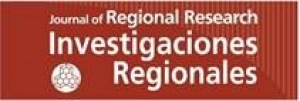
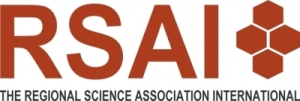
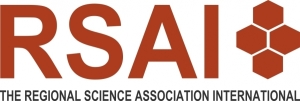
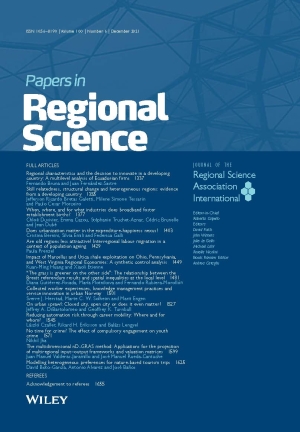


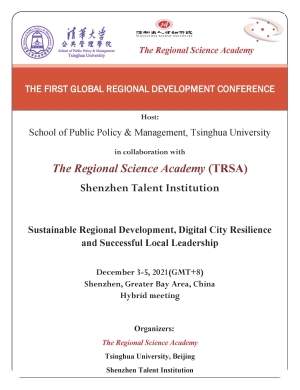
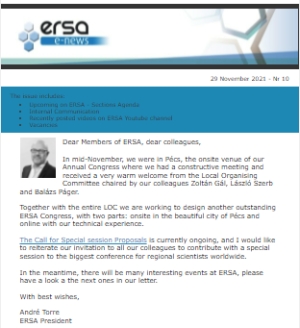

 Dear Members of ERSA, dear colleagues,
Dear Members of ERSA, dear colleagues,
















